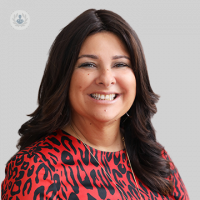Child ADHD and homeschooling during the coronavirus pandemic
Written in association with:As the COVID-19 pandemic continues*, many parents may be struggling whilst homeschooling their child who has ADHD. We were fortunate enough to talk to one of London’s leading neuropsychologists, Dr Debora Elijah about her top tips for parents during this time, including what techniques they can use to help keep their child focused on their schoolwork.

How is homeschooling a child with ADHD different to a child without?
Children with ADHD can be especially frustrating to parents because while they can perform certain tasks just fine, they can’t do them all of the time. A child with ADHD will find it hard to concentrate and difficult to self-regulate. They may also struggle to sustain their attention on the screen for online sessions or a Zoom class.
What might a typical homeschooling day be like for children with ADHD?
Parents may be stressed as they might be trying to work at the same time. Their child might not be able to sit on a chair and concentrate on their virtual learning. Many children might be running around or ‘misbehaving’. This is a result of the child not being able to sustain their attention on one certain task and they often get easily distracted.
Is maintaining a routine important?
Maintaining a routine is important. Creating daily and weekly routines can help build good habits and may ease some ADHD symptoms. Structure and routine, for example, can help reduce stress and uncertainty.
Creating a routine can include:
- Scheduling regular times for sleeping, eating, and physical activities.
- Setting aside time for work, homework, physical activity, relaxation, and hobbies.
- Spending a few minutes in the evening to come up with a shortlist of tasks to complete the following day.
- Scheduling chores, grocery shopping, and other household activities ahead of time.
How often should children with ADHD take breaks?
Your child should have a movement break every 20 minutes. It is important to liaise with the school in order to accommodate frequent movement breaks.
How can I ensure my child focuses and achieves their full potential?
To help your child to focus, I recommend the following:
- Have a box with sensory toys next to them - once they complete three activities, they can have a five-minute break (use a timer).
- Use counters - every time they complete one activity, they put a counter in a jar, every three counters they have a movement break.
- Important to communicate with the school – to accommodate and understand and implement helpful strategies.
Is remote learning during the pandemic more challenging for children with ADHD?
Yes, remote learning can be very difficult for children with ADHD. People with ADHD may be facing disruptive changes in their life due to the COVID-19 pandemic. These changes may trigger new or worsening symptoms of ADHD or other mental health conditions, such as anxiety or depression.
Practising preventive measures, creating a routine and a calm environment, exercising often, and socialising digitally may help all relieve these symptoms.
Dr Elijah specialises in working with children who live with ADHD. If you would like to discuss whether she could help your child, book an appointment with her via her Top Doctor’s profile here. Can’t make the appointment in person? She is also available for a video call using our e-Consultation tool, which can be found on her profile too.
**The information in this article about the COVID-19 pandemic is relevant to what is happening in March 2021 and is subject to change**


